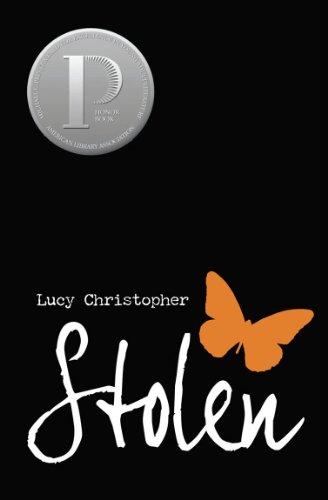All Nonfiction
- Bullying
- Books
- Academic
- Author Interviews
- Celebrity interviews
- College Articles
- College Essays
- Educator of the Year
- Heroes
- Interviews
- Memoir
- Personal Experience
- Sports
- Travel & Culture
All Opinions
- Bullying
- Current Events / Politics
- Discrimination
- Drugs / Alcohol / Smoking
- Entertainment / Celebrities
- Environment
- Love / Relationships
- Movies / Music / TV
- Pop Culture / Trends
- School / College
- Social Issues / Civics
- Spirituality / Religion
- Sports / Hobbies
All Hot Topics
- Bullying
- Community Service
- Environment
- Health
- Letters to the Editor
- Pride & Prejudice
- What Matters
- Back
Summer Guide
- Program Links
- Program Reviews
- Back
College Guide
- College Links
- College Reviews
- College Essays
- College Articles
- Back
Stolen by Lucy Christopher
In Lucy Christopher's novel Stolen, the reader enters into a world of struggle. Gemma is an ordinary 16 year old girl, when in an airport, she meets a man named Ty. Before she knows it, Gemma finds herself kidnapped and isolated in the Australian Outback. Lucy Christopher is genius in the way she writes through the perspective of Gemma. By writing it as a letter to her captor, the reader experiences all the emotions that Gemma is going through.
If you are looking for a book that has elements of fantasy, this is not it. This novel is more like a reflection of reality. It deals with themes such as kidnapping, Stockholm Syndrome, and the effects it has on the media. Like news we hear about today, there are some cases in which we hear of a person who was kidnapped, return to their loved ones after some time. I especially love the way Christopher writes metaphors into the story. For example, Gemma and a camel in the story reflect each other. They were both captured and resistant to Ty, but over time they develop a feeling of comfort around him.
Overall the book was consistent and it did not leave me asking questions at the end. As I pointed out earlier, reading through Gemma’s point of view really lets the reader feel those raw emotions of desperation and isolation. I, myself grew to feel sympathy for Ty. It’s almost as if not only Gemma suffered from Stockholm Syndrome, but me as well. The resolve at the end of the book was similar to my own view. I understand that there are feelings of compassion for Ty, but in the end he did something very wrong and he needs to accept the consequences.
Similar Articles
JOIN THE DISCUSSION
This article has 0 comments.

